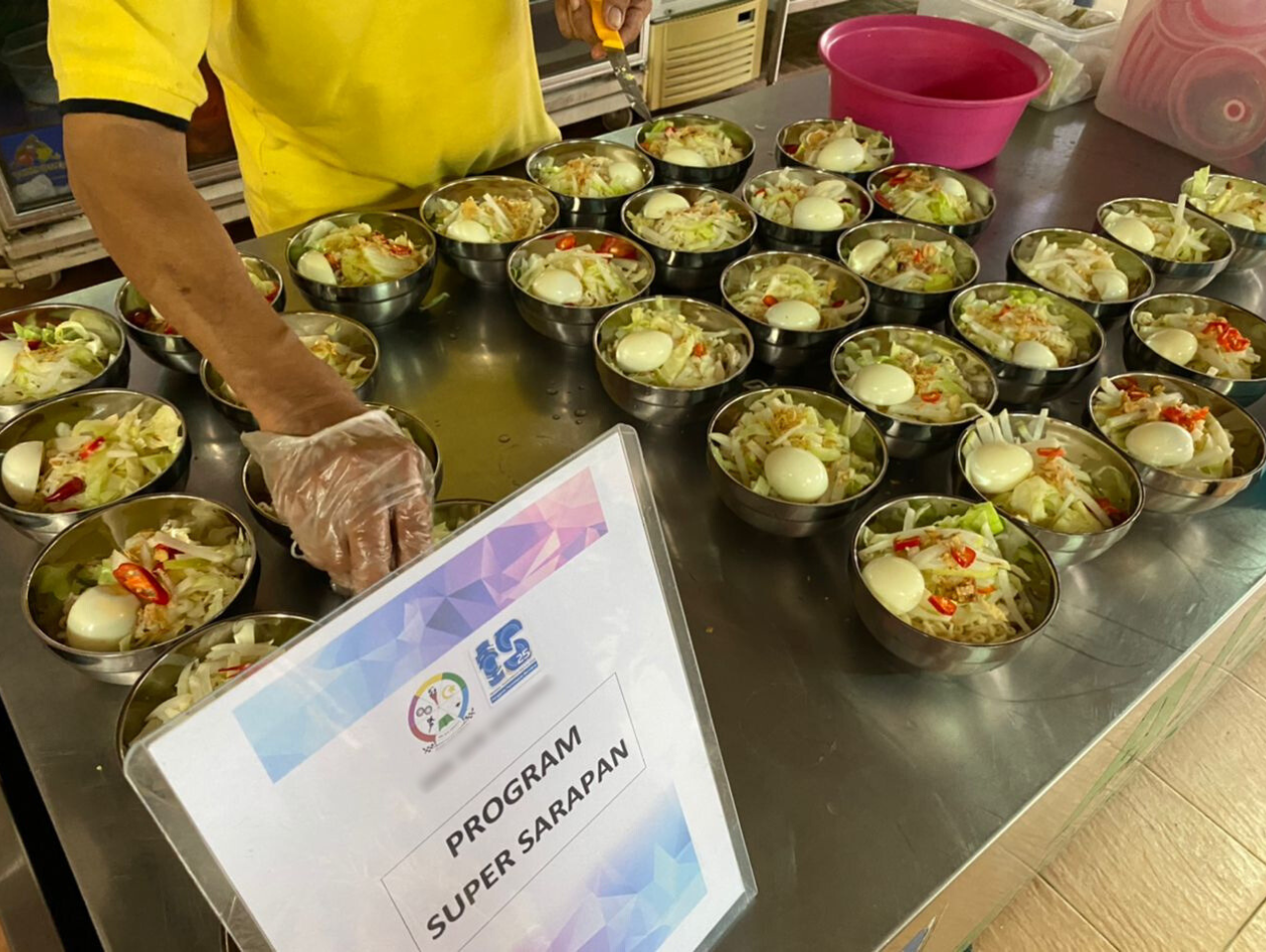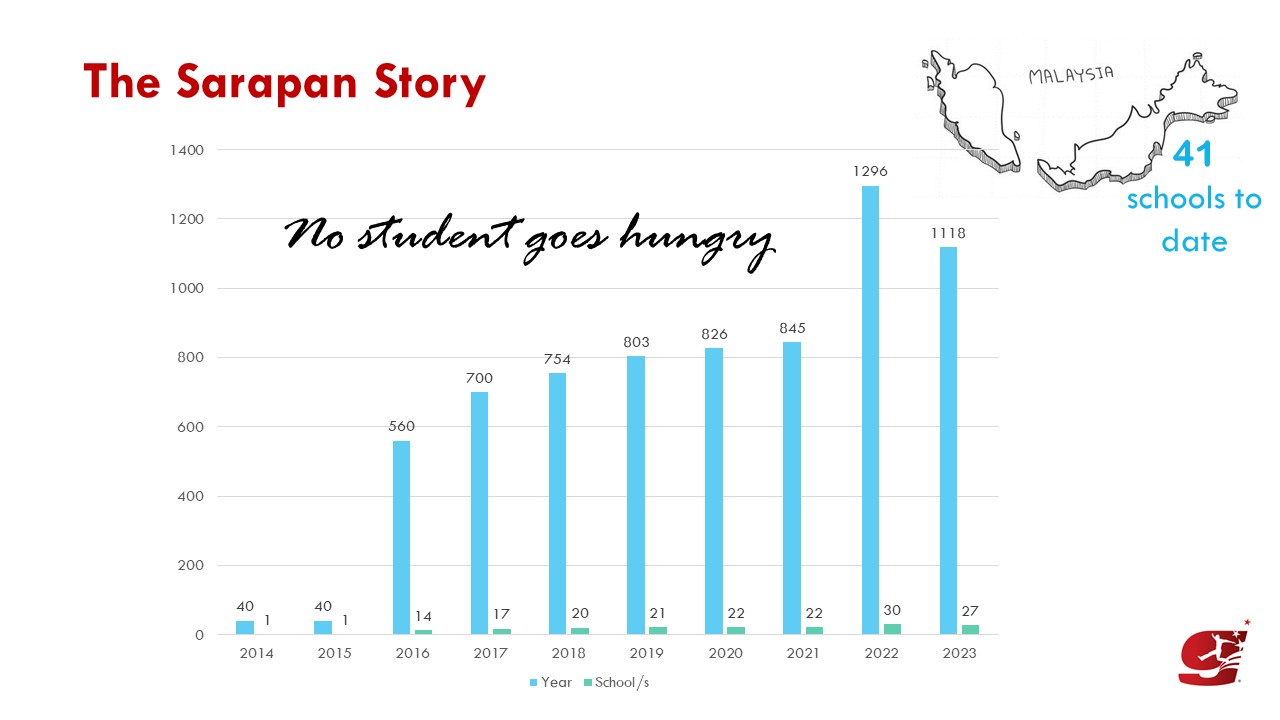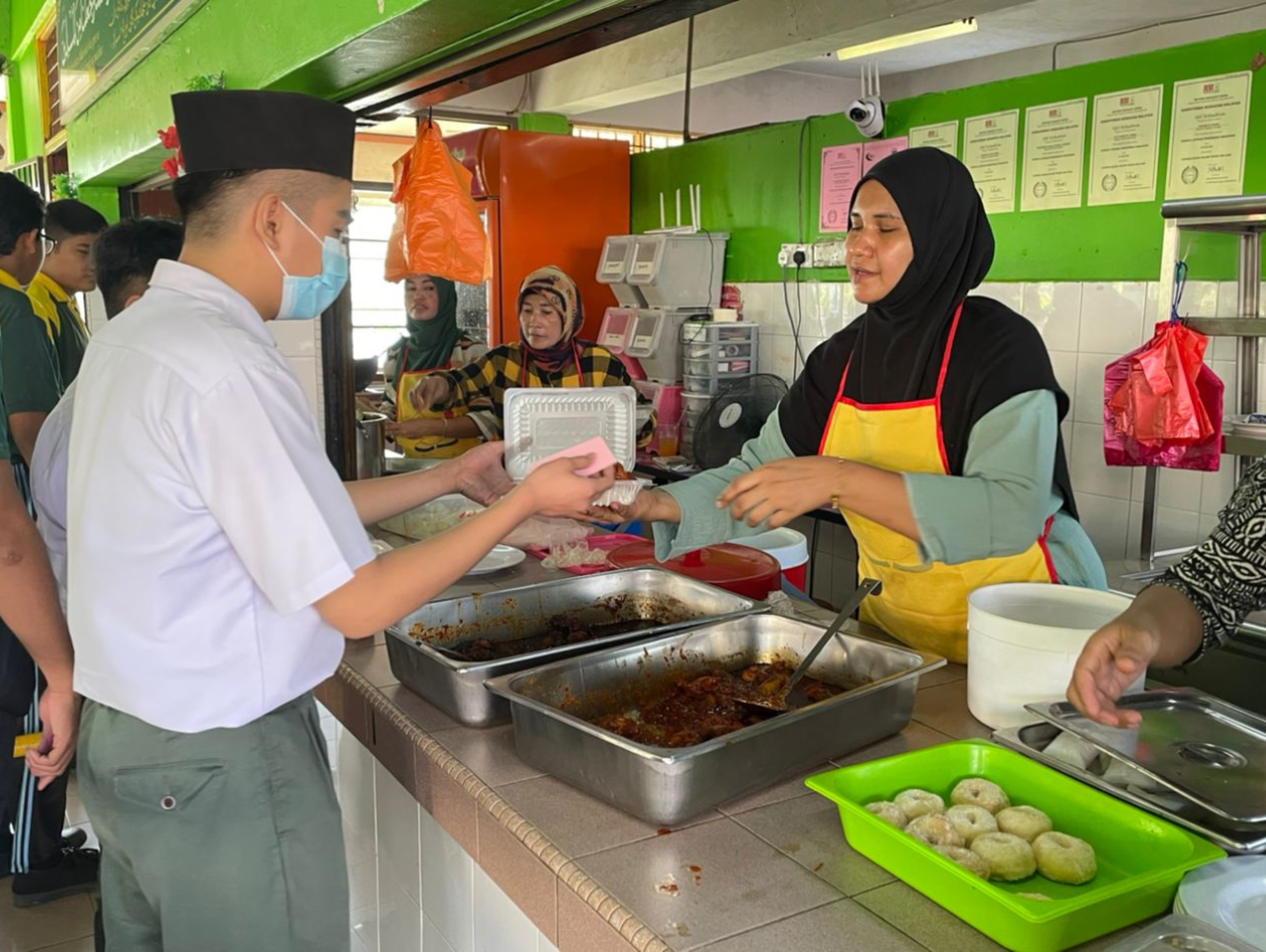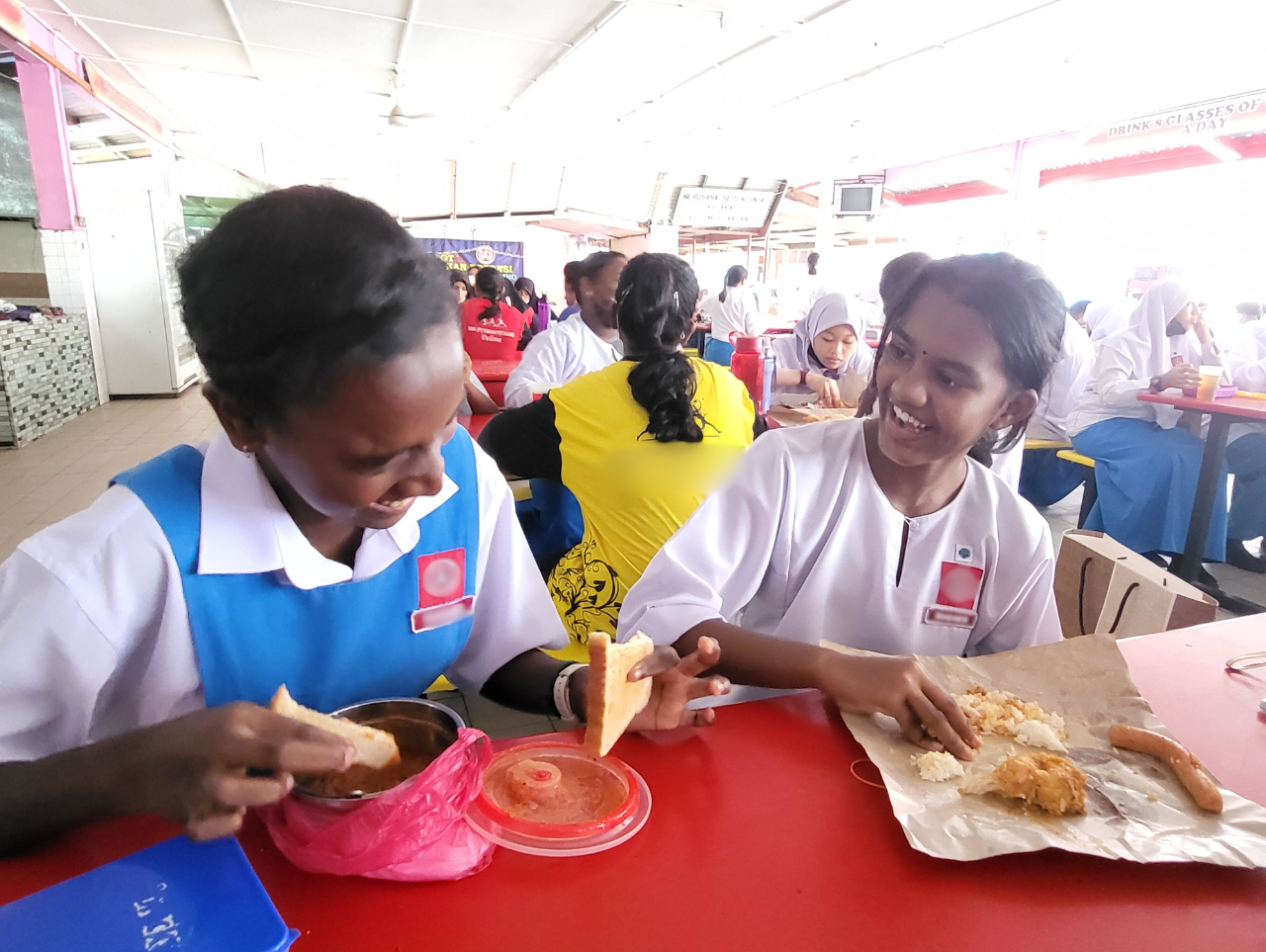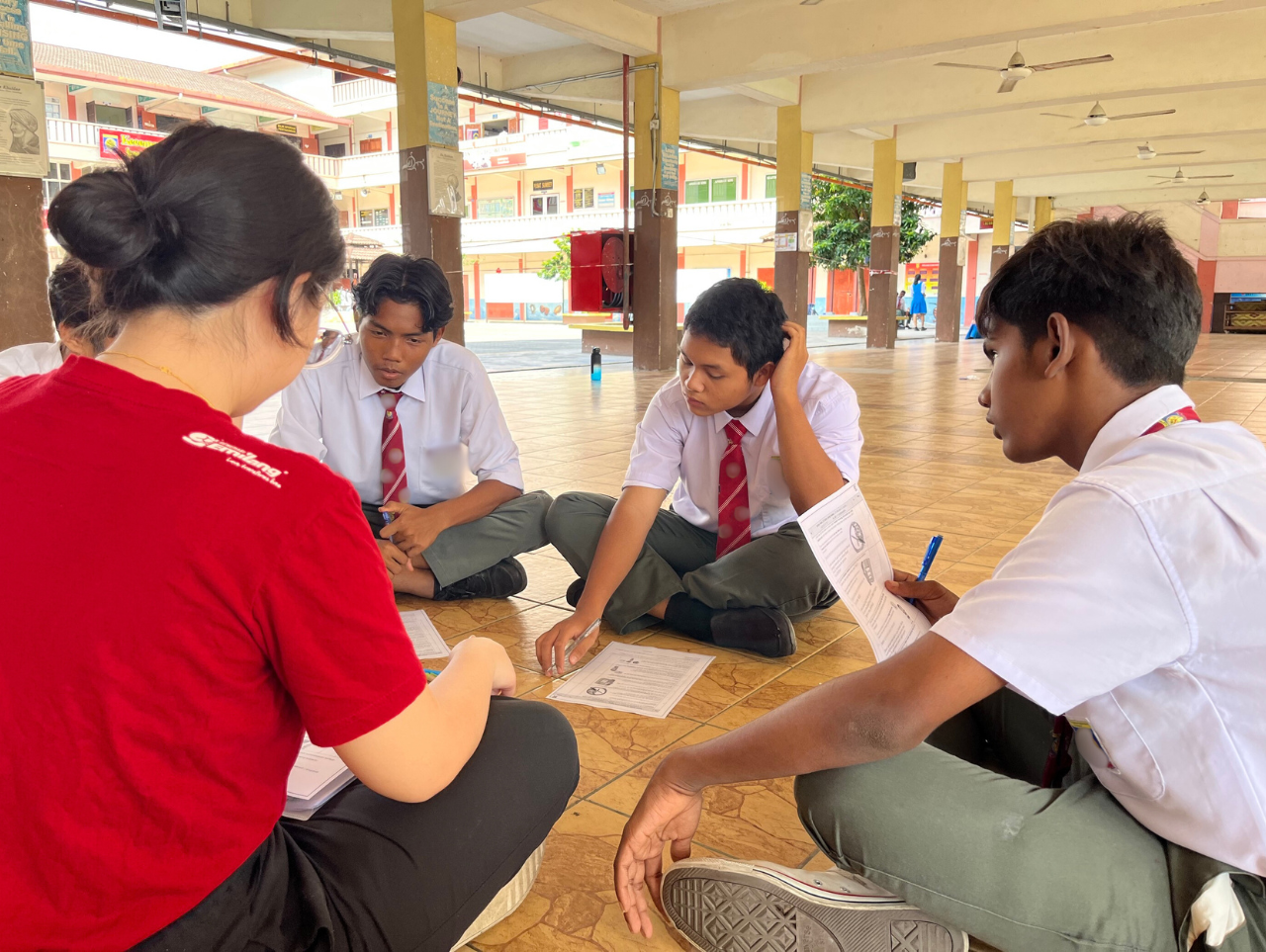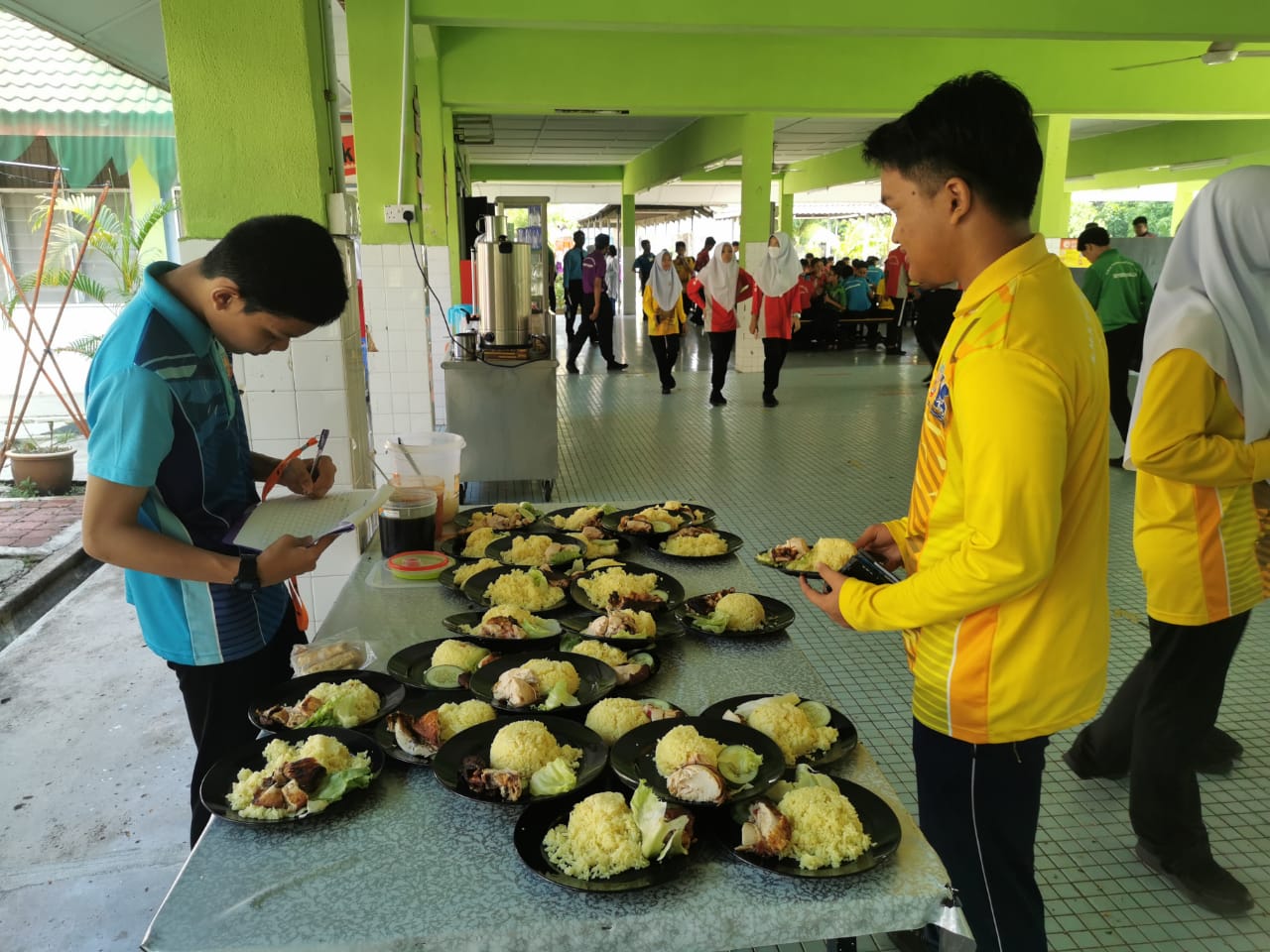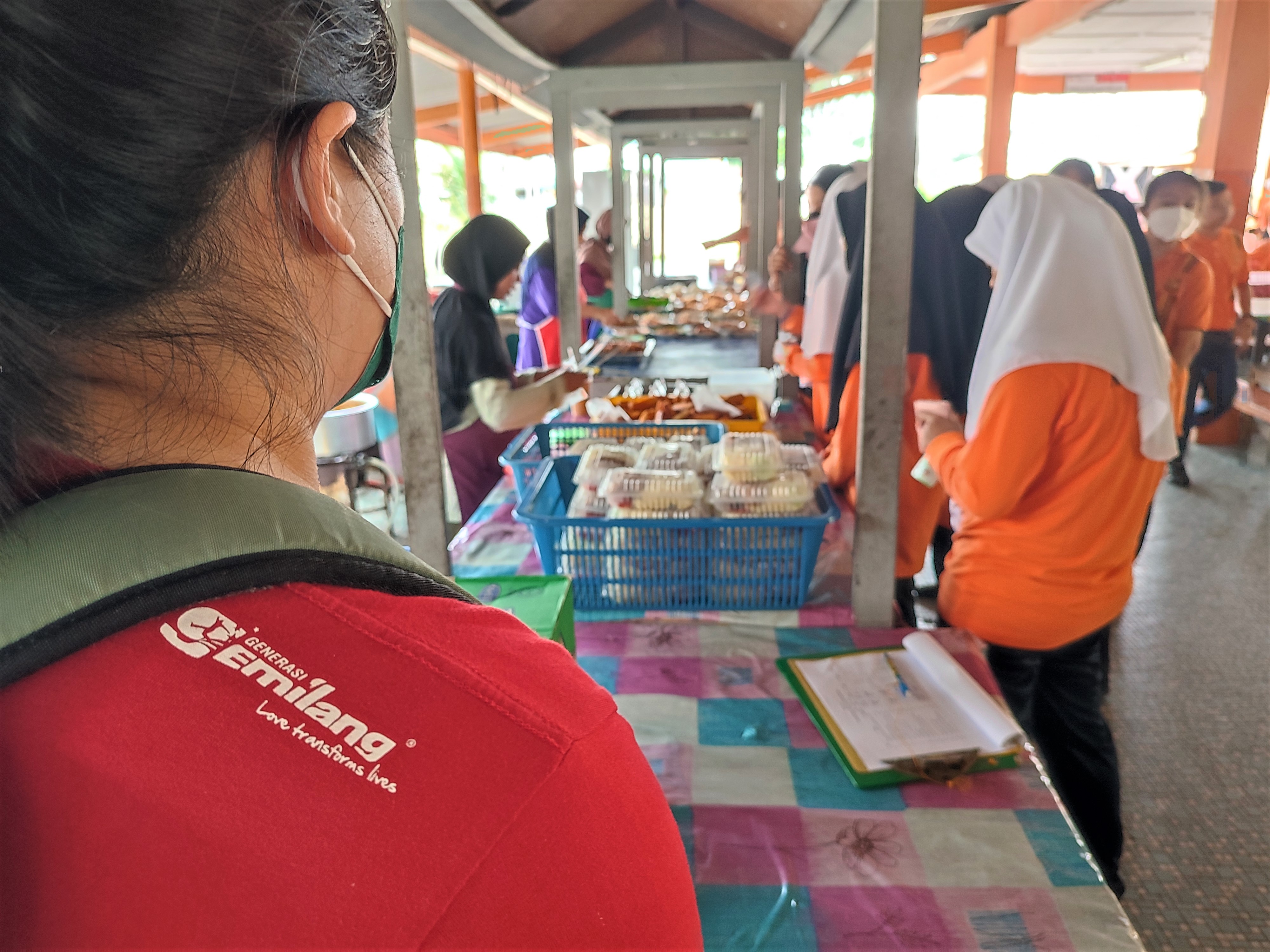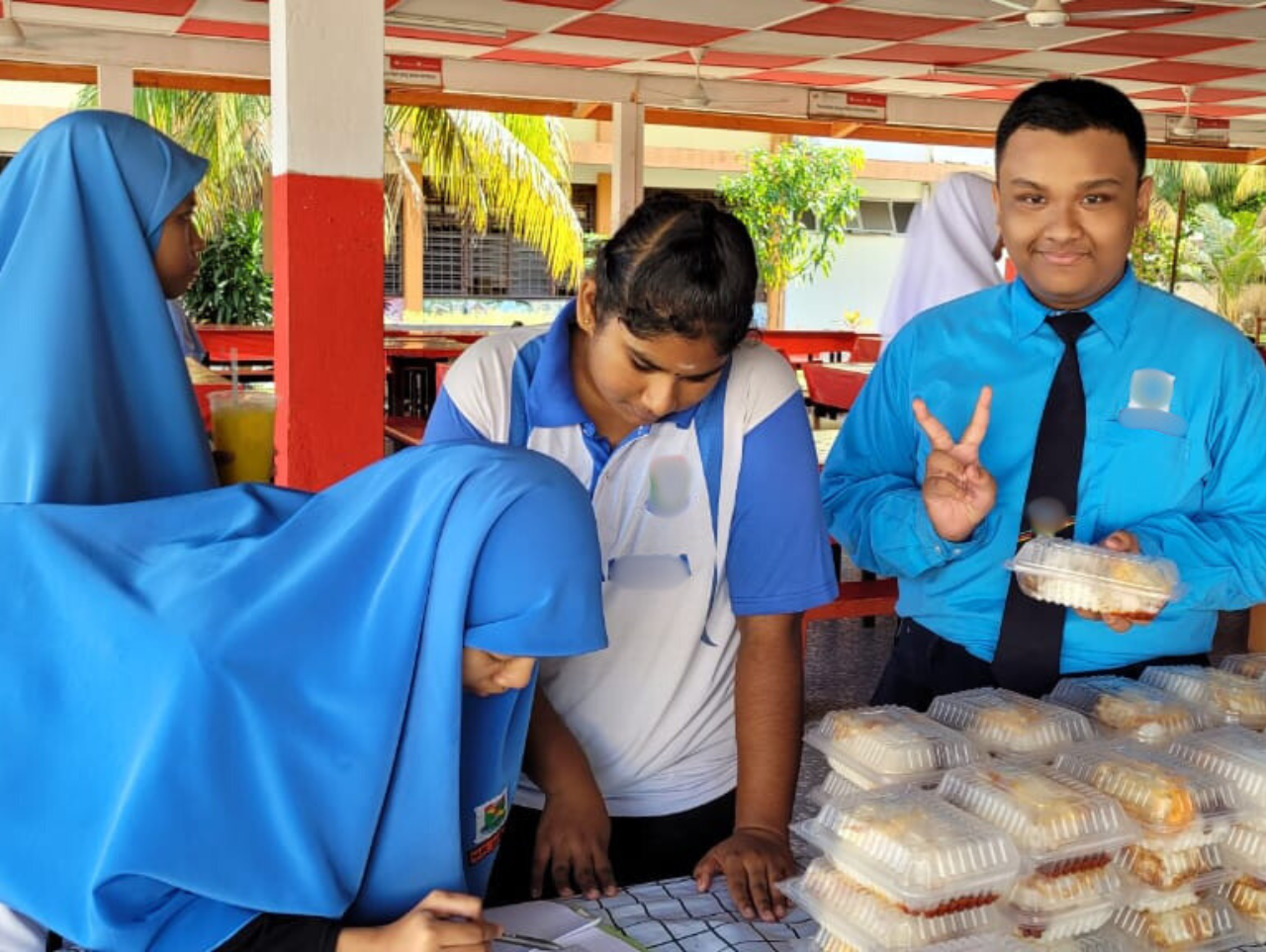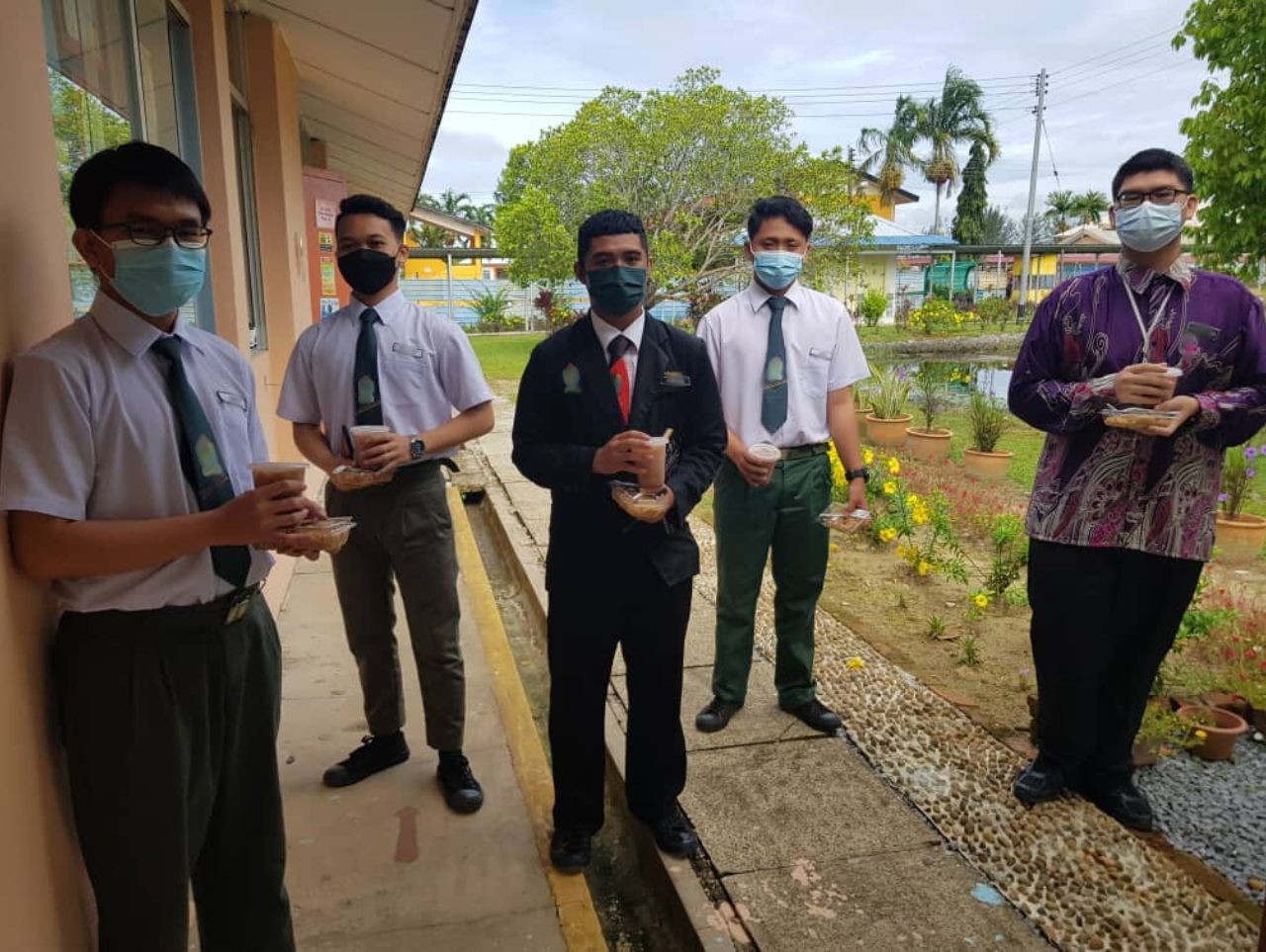This Programme Provides Free Meals To B40 Students In Schools Throughout Malaysia
In 2023, Super Sarapan distributed 170,481 meals to students across Malaysian primary and secondary schools.
Super Sarapan is a school feeding programme that aims to reduce hunger and food insecurity in schools throughout Malaysia
Through this initiative, free meals are provided to students from B40 households with income of below RM2,500 monthly. And to encourage them to not skip school, students who are enrolled in the programme must maintain a 70% attendance rate.
The programme is carried out through the collaborative effort of vested stakeholders, including schools, canteen operators, and corporate partners who act as sponsors.
In 2023, Super Sarapan positively impacted the lives of 1,118 children and youths, with 170,481 meals distributed to students across Malaysian primary and secondary schools.
Super Sarapan is one of the youth development programmes under Yayasan Generasi Gemilang (GG), a foundation that's on a mission to close the education gap for underserved children by improving literacy and nutrition
Besides Super Sarapan, they have various other initiatives and programmes, all of which fall under under the umbrellas of Early Childhood Development, Community Learning, and Youth Development.
Super Sarapan is meant as a way to supplement the government's Rancangan Makanan Tambahan (RMT), which is only carried out in primary schools for students who come from low-income households.
As there is a cap and limit to the allocations per school for RMT, GG is helping to reach students who fall outside the government initiative's purview.
Super Sarapan began in 2014, when the GG youth team was invited to conduct a workshop at a local school
During recess, the team saw a group of boys huddled in a corner of the canteen. Hungry but without much money to buy food, the boys were sharing a single bun that one of them had bought.
That's when the GG team knew that something had to be done for these students, and others like them.
This one incident sparked endless questions and thoughts in the team's mind — "Surely, they must be hungry!", "Are there more hungry students?", "It must be hard to concentrate in class when your stomach is growling."
Super Sarapan was founded there and then, in an urban Petaling Jaya secondary school. Ever since, the team has discovered more and more students who come to school hungry, in need of a meal.
Last year, the Super Sarapan team surveyed over 1,000 students across all the schools they serve, to better understand the challenges around hunger and food insecurity amongst local students.
Here's what "hunger" looks like in Malaysian schools, according to the survey:
1. Hunger is not always what we expect it to be
Contrary to stereotypes, hungry children are not necessarily skinny — they often look and behave very much like their peers. Many of them look happy and are able to perform well in school, with some even being prefects, librarians, or school athletes. It is only when the right questions are asked that the fact that they are going hungry is revealed.
One boy shared that before he joined Super Sarapan, he had friends who kindly shared their food with him during recess when they noticed that he did not have food. However, the more they did that, the more self-conscious he felt about his situation and the obvious disparity between them.
These feelings drove him to make up excuses to avoid joining his friends. Once, he threw up after sports practice because he had not eaten for a day. This worried his friends, but he claimed he was just unwell instead of saying he was really hungry.
His story served as a reminder that hunger is not always what we expect it to be. Just because we don't see a need, doesn't mean it's not there — some struggles are hidden in plain sight.
2. Not having food is not the only way to measure "being hungry"
Last year, the Super Sarapan team started to use a global tool that measures hunger, called the Food Insecurity Experience Scale (FIES).
Developed by the Food and Agriculture Organisation, the FIES scale shows us that hunger takes many forms, with food insecurity starting when an individual worries about food availability and access.
Super Sarapan's first assessment revealed that 95% of students in their programme experienced food insecurity. Almost half (45%) of them were worried about their next meal, while the other half (34.2%) ate less or even skipped meals because they didn't have enough food. This daily worry shapes their choices and experiences in profound ways.
Many students reported that they returned home from school to an empty house and empty cupboards.
Some older students said they could cook plain rice and fry an egg for themselves. Others, especially the younger children, said they waited for their parents or older siblings to come home with food, usually at dinner time.
They did not know with certainty if they had food at home for them or if they would be going to sleep hungry.
3. 15.6% of students surveyed fell under the "severely insecure" category, which means they go without food for a day
One such student is 14-year-old Z (not his real name). He and his brother live with their mother, a single parent who is the sole breadwinner of the family and works most days from 6am to 8pm.
Z and his brother usually go without eating unless their mother brings food home or cooks. And on the occasions that she does cook, it is usually after work, which means the family of three sometimes eats as late as 10pm. A typical meal for them consists of rice and vegetables, no meat.
During his conversation with the Super Sarapan team, Z revealed that the only meal he had the day before was the one provided at school by Super Sarapan, as his mother was too tired to cook after having to work an additional shift the night before.
Another incident that showed how alarming the degree of hunger among schoolchildren is was when a student fainted at a school in Miri, as recounted by a teacher to the Super Sarapan team.
It turns out that the student hadn't eaten anything all day, leading to gastric distress that caused her to faint. Shocked by this, the teachers pooled their money to help her. This incident led to the teachers uncovering more hungry children who frequently came to school with an empty stomach.
At the end of the day, one question remains — how much does providing one free meal a day to students via Super Sarapan actually help them?
Thankfully, a simple meal does indeed make an enormous difference!
The survey showed a trend of Super Sarapan helping to move students who struggle with food insecurity from 'moderate' and 'severe' levels to 'mild' in many schools. A particularly impressive highlight is the drop to 6.65% in the 'severely insecure' category.
Though each free meal is only worth RM5, it serves as a lifeline for many students, easing the burden of hunger that weighs heavily on their young shoulders.
It's not just sustenance — it's a source of hope and relief. Some students have expressed profound gratitude, sharing how this meal provides them with their only source of meat for the day. Others have highlighted how they're happy to be able to socialise with their peers during mealtimes instead of isolating themselves during recess.
Additionally, some students have shared heartwarming stories of how this meal alleviates the financial strain on their parents. This has allowed their parents to eat as well, instead of sacrificing their meals for their children's sake.
Z even shared that he was incredibly grateful to receive Super Sarapan because this meant he could return whatever pocket money he received to his mother. He wanted to do whatever he could to help her even, if it meant he only had one meal a day.
Despite the rising food prices and the escalating cost of living over the past three years, more Malaysians have contributed to the Super Sarapan programme, for which the team is incredibly grateful
They are encouraged by the growing support from donors, especially the younger generations, and thank everyone for their compassion and empathy.
Knowing many more Malaysians would want to pitch in, they've changed their pledge donations to enable a minimum donation of RM20 monthly.
